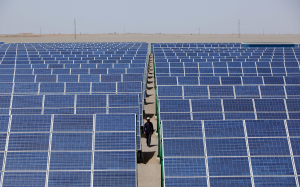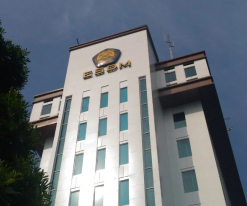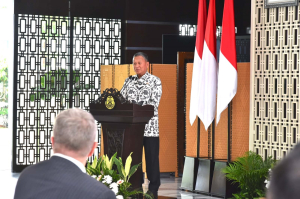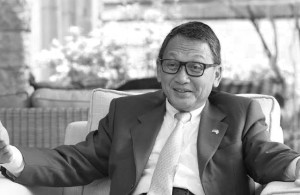Government praised for support on rooftop solar panel industry
Players praise the government for its support in domestic rooftop solar panel industry through suitable regulation.
“The government has regulated the system of rooftop solar panel sales by allocating quotas for solar panel providers and then adjusted the supply based on the needs of the customers. So it is very good system,” Chief Sales Officer at Sun Energy, Oly Gunawan, said on Tuesday, July 16, 2024.
Sun Energy is Indonesia's leading solar project developer provides affordable and environmentally friendly electricity solutions with no upfront investment, and instead, offers monthly lease payments.
By the end of July this year, there is a limit for all costumers to apply for their electricity supply demand.
"We are waiting to see what the implementation will look like," Oky said.
Minister of Energy and Mineral Resources (ESDM) Arifin Tasrif issued on March 5, 2024, Ministerial Regulation No. 2/2024 on Rooftop Solar Power Plant, a revision to the ministry regulation number 26/2021.
Director of New and Renewable Energy and Energy Conservation at the ESDM ministry, Andriah Feby Misna, said there are several revision in the new regulation.
“The first revision is about the capacity of rooftop solar power plant,” Andriah said.
She cited that in the ESDM Minister Regulation Number 26/2021, the capacity of the rooftop solar panel system is limited to a maximum of 100 percent from the connected power of costumer. While, such limitation no longer exists in the new regulation as part of the efforts to make the rooftop solar panel utilized by all users.
However, the ministry regulates on development quota of rooftop solar panel power that can be fed into the grid system of the State electricity company PLN.
“So there is no capacity limit, but a quota limit set by the Ministry of Energy and Mineral Resources,” Andriah said, while adding that the quota of power produced by rooftop solar panel is proposed by electricity providers − both PLN and non-PLN.
In determining the quota, there are factors that are taken into consideration, including short, medium and long term target set by the government in the upcoming long-term electricity procurement plan (RUPTL).
“In the previous regulation, the rooftop solar panel was not included in the long term-electricity procurement plan (RUPTL), while in the new regulation it is part of the procurement plan, so we hope this can provide certainty to customers,” Andriah said.
The last thing to be considered in proposing a quota is system reability. In determining a quota, business needs to see the reability of the system, while at the same time, the government can improve the infrastructure in order to increase the penetration of rooftop solar panel can be greater.
On the quota of the capacity, the new regulation regulates that electricity providers are required to provide a rooftop solar PV development quota for each power system for a period of 5 years with detailed quota every year. The proposal for the quota should be submitted no later than 3 months after the ministerial regulation was promulgated.
“As the ministerial regulation was enacted on January 31, 2024, the quota proposal should threfore be submitted no later than three months by PLN or other power providers,” Andriah said.
Support for green city development
Sun Energy is a developer of rooftop solar panel. The company does not produce components of the solar panel as all materials and components are imported from China.
Besides Greater Jakarta and Java, Sun Energy is expanding their projects across Indonesia including Sumatra and Kalimantan. The company installed roof top solar panel system for villages, mining companies and wood factory in North Kalimantan only last week.
"We are ready to support the new State Capital Nusantara [in East Kalimantan] to become green city," Oky said.
Tag
Already have an account? Sign In
-
Start reading
Freemium
-
Monthly Subscription
30% OFF$26.03
$37.19/MonthCancel anytime
This offer is open to all new subscribers!
Subscribe now -
Yearly Subscription
33% OFF$228.13
$340.5/YearCancel anytime
This offer is open to all new subscribers!
Subscribe now






